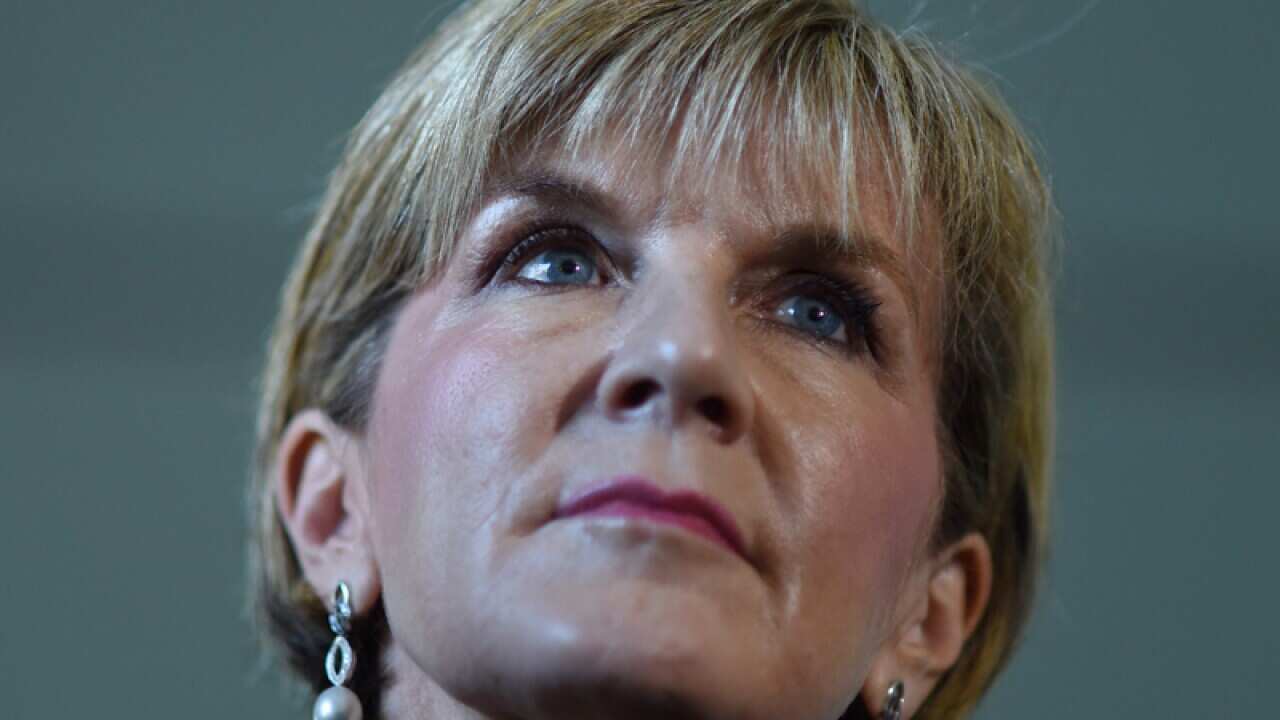Foreign Minister Julie Bishop has used her few moments on the world stage at major climate talks in Paris to spruik the federal government's new innovation package.
Despite being thousands of kilometres from Australia, Ms Bishop wrapped some domestic politics into her national statement to the United Nations climate change on Monday.
Mr Turnbull earlier on Monday revealed the $1.1 billion innovation package to encourage entrepreneurship and promote science, maths and computing in schools.
"Today in Australia the prime minister launched a new national innovation and science agenda to place innovation at the heart of our economy," she told delegates from 195 countries in Paris.
"By supporting and rewarding creativity, innovation and entrepreneurship Australia will lead by example in the way we invest in and use technology."
It would be technological breakthroughs that would ultimately be the game changers in dealing with climate change, she said.
Part of the package is a $100 million commitment to innovation in renewables announced by Prime Minster Malcolm Turnbull at the conference opening last week.
Ms Bishop also announced $625,000 in funding out to 2017 to promote women from the Pacific region into leadership roles in climate action.
"Australia believes that harnessing the talents and abilities of this and the next generation of female leaders is not only the right thing to do, it's the smart thing to do," she said.
Ms Bishop on Monday repeated the prime minister's announcement that Australia would ratify the second phase of the Kyoto Protocol and reminded the delegates Australia had met its first period targets.
Australia has managed secure a deal to ensure its favoured accounting measures on Kyoto will be implemented.
Ms Bishop also spruiked Australia's renewable energy target - which requires 20 per cent of the nation's energy to come from clean sources by 2020 - and the government's "ambitious" 2030 emission reduction targets.
"It will see us double the rate at which we reduce our emissions," she said.
Australia's 2030 target of 26 to 28 per cent on 2005 levels has been criticised as lacking ambition and placing the country at the back of the developed nation pack in Paris.
It's crunch time at the Paris UN conference, with ministers flying in for the second week of negotiations, known as the high-level talks.
It's hoped 196 parties will forge a historic agreement by the end of the week to curb emissions and limit global warming to at least two degrees, however many major issues remain unsolved with just days to go.
Ms Bishop may also have to spend some time sorting out a diplomatic quibble, with the Marshall Islands keen to confront her over a political blunder involving one of the nation's sunken islands.
Australia's foreign minister was left red-faced last week when she accused her domestic counterpart Tanya Plibersek of fabricating a story about an island which lies underwater.
Confusion over the island's spelling led Ms Bishop to reference the wrong island, which hasn't sunk.
Marshall Islands Foreign Minister Tony de Brum believes Australians haven't learnt not to "mess with" or make jokes about the threat of climate change to the Pacific Islands.
Share

